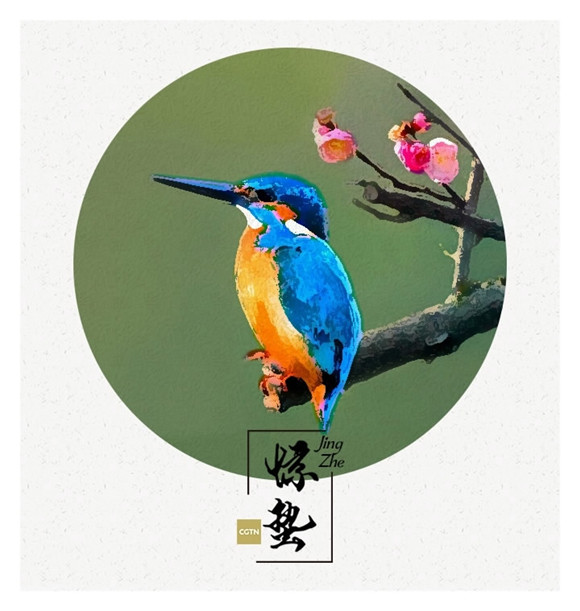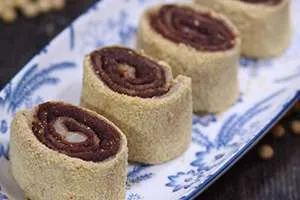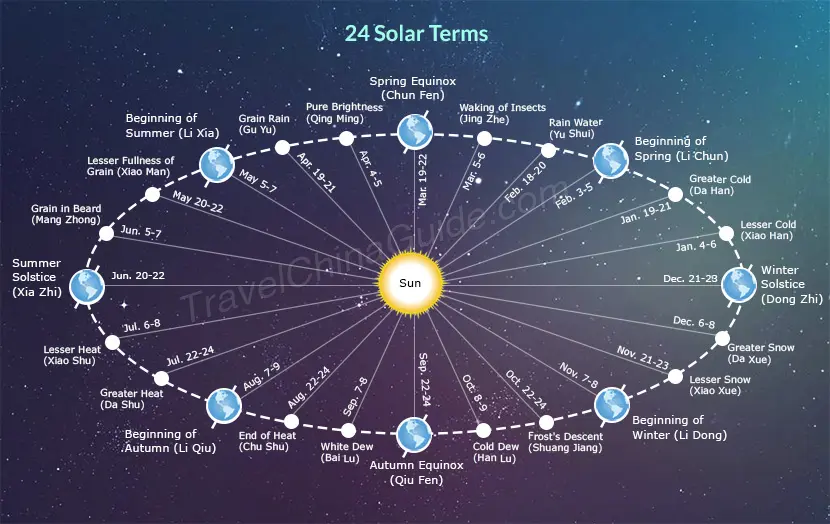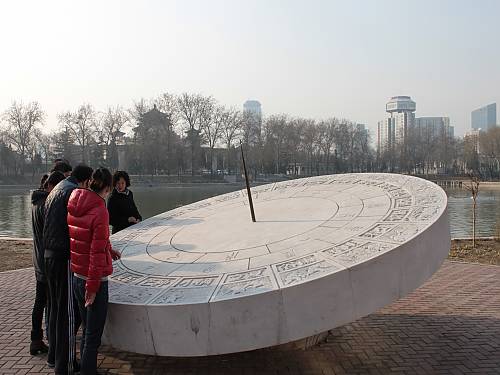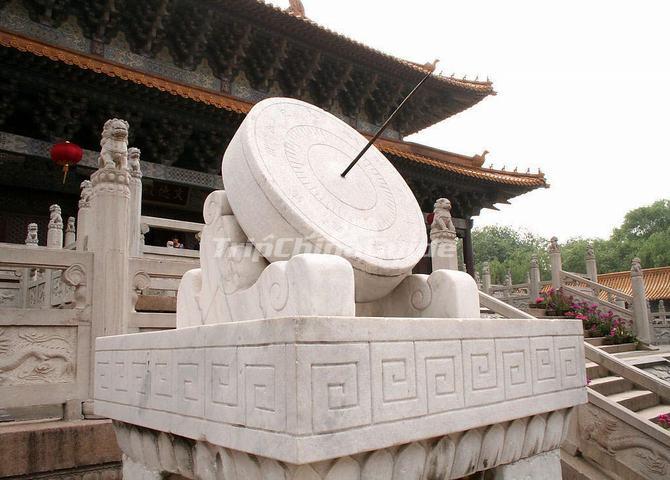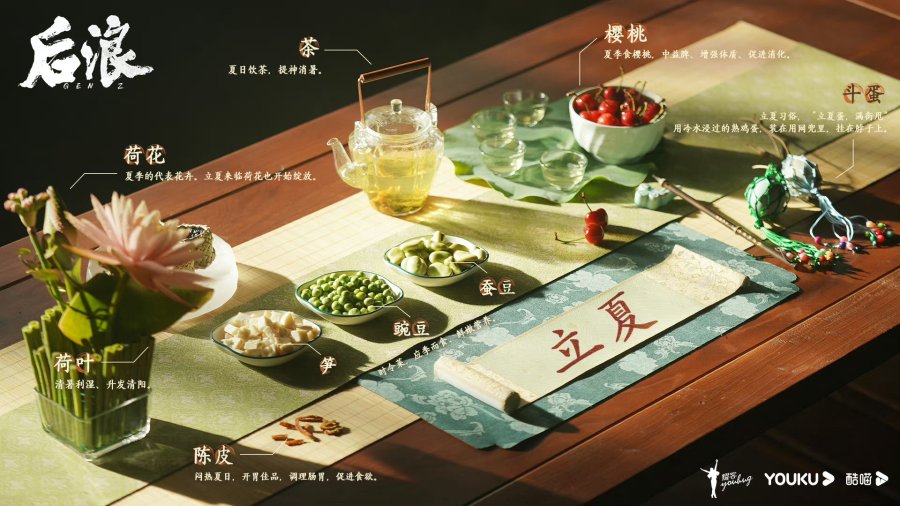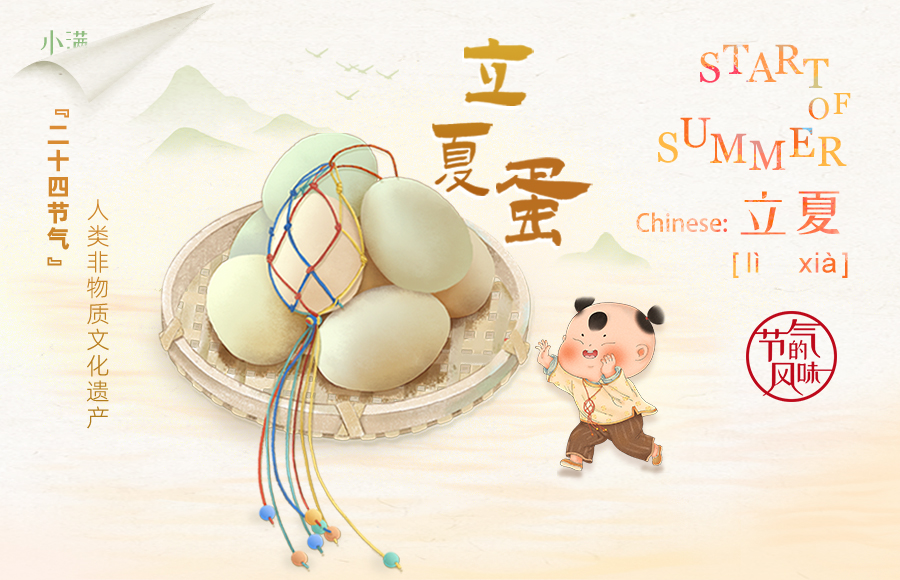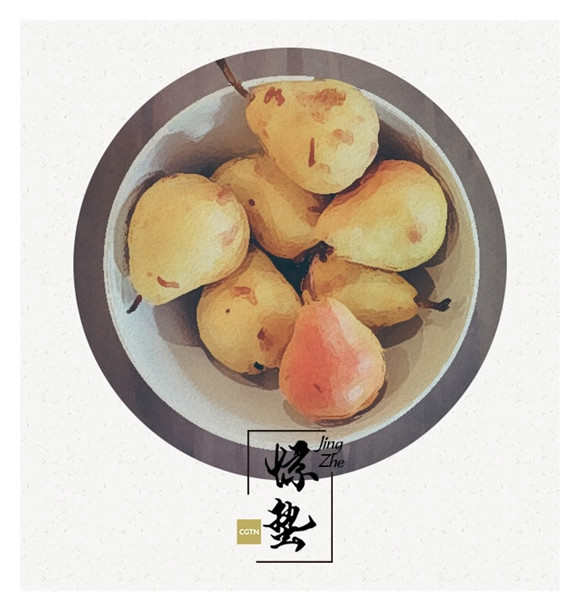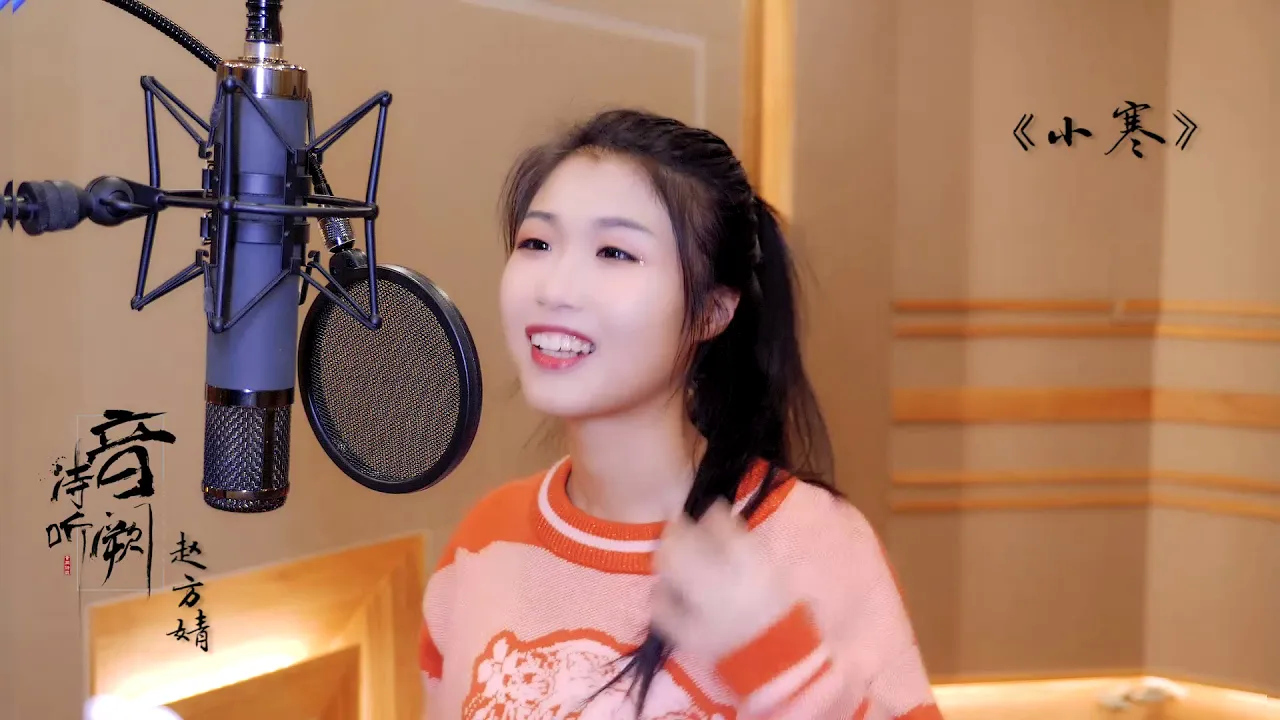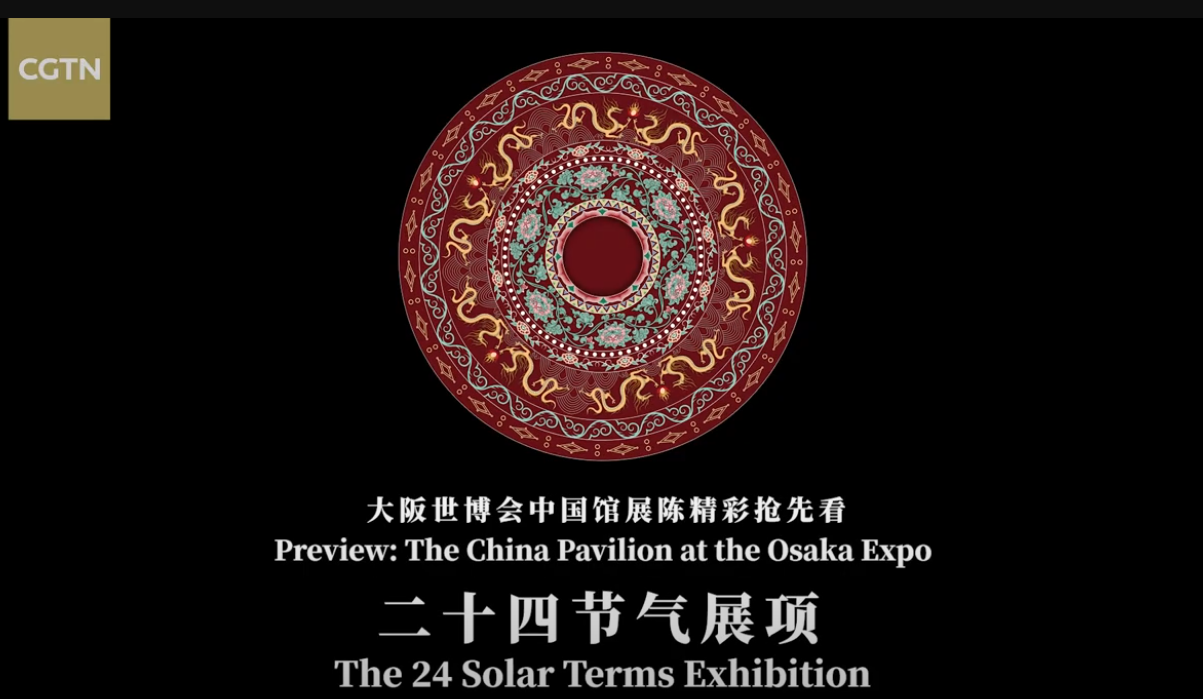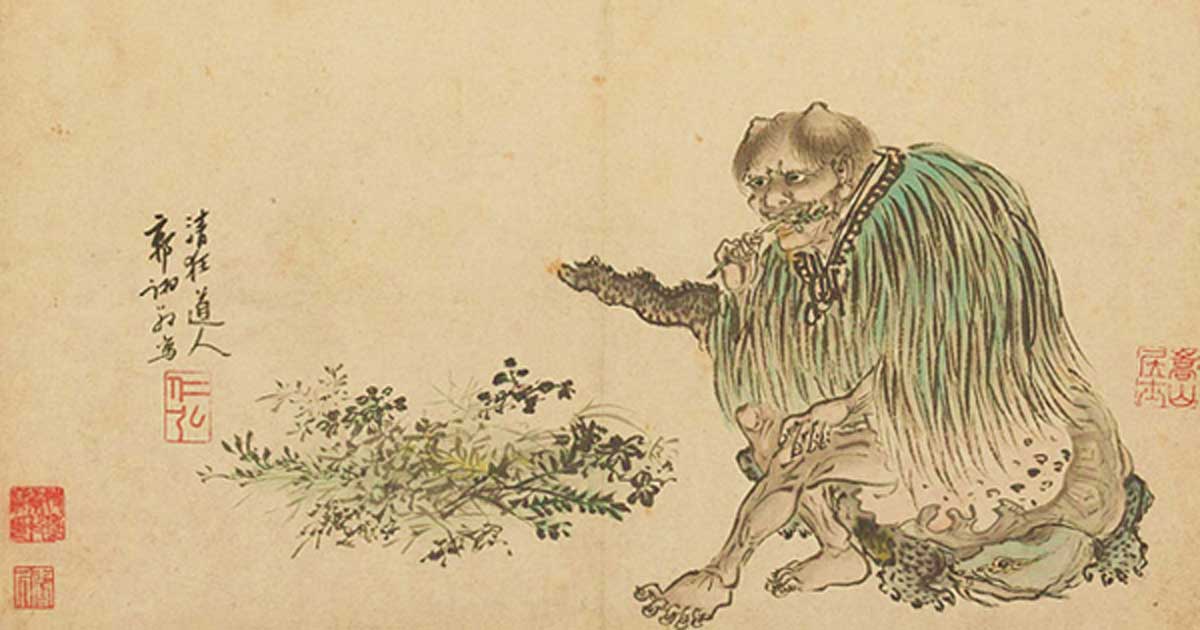GEN ZGeneral information about the drama :
Synopsis :Sūn Tóutóu is an orphan in her twenties. One day, she gets in trouble while fighting injustice. Rèn Xīnzhēng, a professor at the University of Chinese Medicine, comes to her aid and hears about her life story. Professor Rèn accepts Tóutóu into the TCM (Traditional Chinese Medicine) course to give her a fresh start in life. She accepts the challenge to learn under Rèn Xīnzhēng and eventually inherits his family's TCM practice. Professor Rèn's son, Tiānzhēn , is a classmate she dislikes for being haughty and causing her some difficulties. The quest to gain knowledge is challenging enough without adding adjusting to the generation gap between students and lecturers. Maturing, Tóutóu stays nevertheless and finds herself increasingly interested in traditional medicine. Tóutóu and Tiānzhēn become closer as they learn to understand and empathize with each other. Tóutóu, her classmates, and their lecturers will persist and follow their dreams. Where to watch : Youku, or this playlist on YouTube with optional subtitles. Original soundtrack: Gen Z OST - the drama had 6 OST songs among which
Sources on Chinese pages : Baidu, Weibo, Douban (on which the drama earned a lukewarm 4.1 from 102.5 thousand raters, as the background of TCM and covid-19 pandemic perhaps did not appeal to all and some regretted the topic did not get to convincing hot romance (but it was not the focus). Still, it was an ambitious topic that got much discussed. On May 24, 2023, the drama reached Youku’s 10,000 rating, after 11 days of broadcast (As monitored by MDL member Dreams, it reached 10 000 heat index for 8 days on that date). It was nominated for three TV awards and shortlisted for the 14th Macau International TV Festival. On 1 January 2024, Hòulàng/Gen Z won “Outstanding Drama Series of the Year” in China TV Drama Awards 国剧盛典 2023. and was awarded the Quality Drama of the Year at the 2024 TV Series Quality Ceremony. Note : pictures in the Discussion are linked to their sources although some links may be unavailable now.) [To view the list of my other drama companion pieces (with links to them), check : HERE.] | |
|
1. SOLAR TERMS AND TRADITIONAL CHINESE AGRICULTURAL CALENDARThe drama opens on a mention of the Awakening of the insects : Jīngzhé, one of China's 24 "Solar terms", which was on March 26 this year 2023.
Once upon a time, insects hid in the soil in winter without drinking or eating, which is called "zhé" in Chinese, meaning hibernation. When it comes to the day of Jīngzhé, thunder wakes up the hibernating animals, called "Jīng," meaning "wake up in a panic". (But in fact, insects can not hear the thunder, animals wake up because the weather is warming up and they are ending their hibernation.) There are a number of colorful superstitions attached to that period : "Villain" hitting originated in the Tang Dynasty (618-907) and it's a folk ritual popular in Guangdong and Hong Kong. The custom is practiced during the Awakening of Insects to expel the "villain" and to bring good luck. People assign a specific "witch" (usually an elderly woman) to "beat the villains". They use paper cut in the shape of humans to represent "villains" in their lives and the "witch" would use shoes or other tools to hit the paper to expel bad luck! (One way of getting rid of colleagues-related annoyance instead of go bowling and imagine the "villains" heads on the pins?) Furthermore, in that period, people offer sacrifices to the white tiger during the Awakening of Insects to protect themselves : people draw the white tiger (believed to be a harbinger of quarrels and disputes) on paper, and then smear pig's blood and pork on its mouth. This means the tiger is fed so that it will not bite people, avoiding bad luck and conflict.
Eating pear is a custom during Jīngzhé. Pears can be eaten raw, steamed, juiced or boiled in water. Because the weather is dry during this time, eating pears can be hydrating and relieve a dry throat. In ancient China, when there were more kinds of creatures, some infectious diseases did not have special medicine. On the day of Jīngzhé, the time when all bugs wake up, eating pears is also a way to remind everyone to be careful. Still in Chinese, "pear" 梨 and "plow" 犁 are also pronounced the same, which means that crops can start to be planted. The Chinese people have attached great importance to Jīngzhé since ancient times, and it is considered to be the beginning of the spring farming season."
The "equatorial sundial" above, with sculpted mentions of solar terms, in Beijing, was featured in UNESCO documents for the inclusion of the 24 solar terms into ICH (Intangible Cultural Heritage). To the right, the most famous sundial (日晷 rì guǐ) stands in the Imperial Palace of Beijing. In the Astronomical Observatory (登封观星台) which was built in 1276 Gàochéng 告成, Dēngfēng City 登封, Hénán Province, there is an ancient meridian line sun dial that was used to tell days in the traditional agriculture calendar.
24 Solar Terms in 2023
Several episodes in the drama start with a special opening sequence tastefully illustrating the period in this calendar, with the dietary and TCM recommendations that are associated.
Now here's the Lìxià -Start of Summer tune for your seasonal enjoyment, sung by 昆玉 Kūn Yù, other member of the group. (the lyrics to that song are in description of the video, but without pinyin or translation; nevertheless you can find link to pinyin and translation by clicking on her picture below): (Infos sourced from CGTN and China Daily, and travelchinaguide.com. For sources of info and picture of Zhào Fāngjìng: the Internet archive where you can listen to her other songs : https://archive.org/details/zhao-fangjing-songs/Zhao+Fangjing.+Alley.mp3)
|
SooReneccs In 1 episode there was mentioned a 7 body locks- soul returning lock. I had translated it into pinyin but no result. I know it something to do with acupuncture point? Do you have any articles/links about that? Sorry if out of topic and thanks in advance.
Looking into it although not being a specialist of acupuncture or a therapist, I am not sure. Will rewatch if time allows, to find specific moment and context. This drama being a work of fiction there may be instances where real notions were changed to suit the imaginary (for instance, the zipping mouth part looked amusingly wuxia-inspired!). You may remember the delicious self-defense lesson taught by Zisheng to Shaoshang in last year's beautiful drama Love Like the Galaxy, where he put his Life Gate Mingmen in her hand? Well, this acupunct is not on the lower back but on the lower front part of the body between navel and pubic area, and has uses that are more related to healthy qi than to send enemy fainting... if you see what I mean. One could argue that since it is all gate to internal, the lower back also could be touched, but there's a bone in the way! So that specific "point" was to lure the young lady into a nice embrace, of course, lol
Will try to give more info and links about acupuncture and TCM soon, after my partial and superficial introduction to luni-solar Chinese calendar culture.
Anyone who wants to share knowledge is welcome here too, of course!
Acupuncture point Mingmen is correct, at back , GV 4/Governing Vessel/Du meridian line (important point as in front is Dantian, where all qigong exercises close with palms on it). Am doing TCM medical qigong for gastric problems and had indexed all acupuncture points in pinyin. If not mistaken , that 7 body locks was in episode 4. Thanks for your trouble.
SooReneccs Ooh yes, I did do qigong exercices at one point, until unrelated trouble made me unable to go on except looking at it from far away. I do remember that closing point. The routine was nice, I did feel in better shape then. Perhaps I'll take it up again, although somewhat lacking a suitable place to do it alone from memory, and people to do it with: nearest group is not close-by now, and getting there is complicated for me.
Maybe you could do a quick introduction about acupuncture, if you have time and like to share about it?
I thought the inflatable mannequin in the drama was fun, Found in pinterest and on google some posters and drawings about meridians and acupuncts.
@SooReneccs Btw, I re-watched episode 4 and did not find the mention of 7 body locks- soul returning lock. Was it in the discussion during the dinner prepared by Toutou, about the emergency acupuncture performed in the supermarket by Ren Tianzhe, where he explained that he "targeted her thenar muscle, her Nei Guan meridian, and He Gu meridian"? Apart from the Tai yin imbalance diagnosed for the girl with (at the time undetected) ecchyesis and the earlier discussion about yin yang in the class where Toutou was cat-napping, and later correction by Toutou of Rebecca's markings of acupuncts on the inflatable doll, there was no more technical acupuncture discussion?
Sorry, went back and re-watched, its epic 3, when Rebecca fainted @38.35. Mr.Ren then lifted her arm and pressed her armpit, if not mistaken pressed HT 1 /Heart 1, artery to heart(.forbidden to do acupuncture) He then did acupuncture to P8/Pericardium meridian/Laogong(where in qigong palm over palm at closing of qigong exercises, P8 overP8) These 2 points H1 and P8 ,if not mistaken is to reduce heart fire and calm the Shen/mind/spirit/body. Difficult as don’t know Mandarin, 1 word in pinyin is different in writing. That was the epi , when Toutou's friend, the nurse, came for the seminar and Ren said will teach them 1stt aid in TCM. Suppose to be in epi 4, they short-changed us!! I memorised Heart and Pericardium points as in TCM there is a “mother-child” i.e. stomach is child to mother, the heart, if child got problems, it will pull qi from mother, thus eventually there will be heart problems. And mother can cure child problems that the beauty of TCM!
Thanks for telling me where to look. :)
Acupuncture is very technical, and it's interesting to have a drama focusing on it like here. Production seems to have been careful with gathering approval from specialists before airing, and of course there's the usual warning to not try imitate wildly. As in other type of c-dramas revolving around an "industry", the drama also takes into account concerns that link the traditional culture to present-day concerns, such as certification, schools and authorities that approve and support TCM or not, given the importance of modernizing health care.
2. TCM IN CHINATCM is a vast field of healing practices. Decried by modern science for some quacks using it for "snake oil" pushing and having non officially trained and approved grassroots "magic" healers, it has gained some recognition nonetheless for being a holistic approach that can help bring to attention overlooked conditions, introduce some interesting herbal compounds such as Artemisinin for study and development in pharmaceutical industries, and contribute to daily life wellness through its dietary and exercising routines (around the concept of QI, which is not only breathing and movement techniques) that can link with martial arts practice. In the PRC, the practice of traditional medicine is regulated by a ministry level governance, that also monitors the importance of TCM departments and prescriptions in public and private hospitals and clinics, the teaching methods and approval of students, and the sale of TCM medicine in pharmacies. Looking for more information about all this, I found some essays and pieces of news that were relevant to the evolution and present day importance of these traditions both in China and abroad. The basis is of course the traditions that go back to legendary deities such as Shénnóng.
Shénnóng (神農) is a legendary figure elevated to deity. He is also known under different names such as the Emperor of fire Yán Dì (炎帝). As such, he is the second of the “Three Kings,” a group of ancient, legendary emperor deities. He’s considered to be an ancestor of Huángdì (皇帝), the Yellow Emperor, perhaps even his father." (mythopedia) Shénnóng is credited with the creation of agriculture, the preservation of seeds, and irrigation, as well as the invention of the ax, the well, and the hoe. As god of agriculture, the planting and harvest calendar linked to lunisolar terms is also derived from his precepts. "The Chinese lunisolar calendar, also called Agricultural Calendar [農曆; 农历; Nónglì; 'farming calendar'], or Yin Calendar [陰曆; 阴历; Yīnlì; 'yīn calendar']), is based on the concept of Yīn Yáng and astronomical phenomena, [such] as movements of the sun, moon, Mercury, Venus, Mars, Jupiter and Saturn (known as the seven luminaries) " (Wikipedia) Shénnóng is also considered to be the father of traditional Chinese medicine, in part because of his detailed catalog containing 365 different botanical medicines. Known for trying many of his own herbal cures, Shénnóng is said to have met an untimely death after ingesting a particularly poisonous plant. (Addition : also see Cho Na's guide to TCM herbs in a page about another TCM-related sweet romance drama, 2025 The Best Thing). Whereas tradition has it that Shénnóng was born near the Huà Shān 华山 mountains north of Xī'ān and lived from 2737 to 2697 BC, the earliest records of the The Shénnóng Herbal manual of medicinal herbs date back to around 200 AD while the agricultural calendar goes back to early Zhōu dynasty (1050 BC – 771 BC). Much has evolved of course since those far gone mythical times that give TCM a tradition of roughly 5000 years. Among his contributions to healing, Shénnóng is believed to have refined the therapeutic understanding of pulse measurements, the practice of 灸[jiǔ] moxibustion (the medicinal practice of burning mugwort (artemisia vulgaris) on particular parts of the body). More about him can be found in this article : https://www.ancient-origins.net/myths-legends/shennong-god-king-chinese-medicine-and-agriculture-007760 The philosophy of TCM is also based largely on Daoism (see below), which introduced the yin and yang complementary concept: everything is linked together on Earth, and can have a soul, should be respected. Today, this idea is not that far from ecological concepts that insist on the necessity of respecting the environment, avoid waste etc. In the drama, we watch the protagonists bowing to legendary figures and predecessors: there are, as in philosophy and religion, several "sects" that had their own practices and secrets. Today, though, it is less mysterious and has got more regulated practices ; TCM can be found in hospitals and clinics, and TCM medicine is often sold over-the-counter (the most widely used is probably the "gǎnmào yào" 感冒药 herbal tea for treating colds that is often featured in product placement moments in dramas, movies, and shows).
"In the country's 14th Five-Year Plan period (2021-2025), TCM was given priority to push forward the reform and development of the industry." Among those who supervise TCM at official level, Zhāng Bólǐ 张伯礼 , an academician from the Chinese Academy of Engineering is also head of the Tiānjīn University of Traditional Chinese Medicine (TCM). Jiao Qisen, deputy of the Chinese Congress and chairman of TUS-Pharmaceutical Group, is lobbying for the protection of TCM medicine trademarks, and furthering more coordination between the National Health Commission, the National Medical Products Administration and the National Healthcare Security Administration, in order to provide policy support for the medical procurement of TCM-protected varieties.
But although there are a couple of episodes about the mobilization of TCM and other healers uniting in the fight against covid in Wǔhàn, the drama prefers to leave them as unnamed heroes. We don't get to know about Dr. Lǐ Wénliàng 李文亮, the (much-discussed in the international press and on social media) ophthalmologist who is now officially elevated to 'martyr' status, for his discovery of the illness and selfless action as healer until his death together with 13 other doctors, leaving a widow and two children, one born posthumously. The drama Hòulàng/GenZ is not centered on that historical war-like period which brought about a deep change in the generally optimistic China mind. It takes another Way/Dào towards new and still to discover future, where the "long view" of Chinese traditions and methods for healing have not been beaten down into oblivion. Here are some informative links about acupuncture and meridians "for martial artists": an article from Nature that describes and surveys TCM and the partnerships around the world in 2011 : https://www.nature.com/articles/480S82a#article-info and a piece of news that showcases the present-day of TCM in 2023: https://www.globaltimes.cn/page/202302/1286332.shtml + There's an interesting series of documentary videos on YouTube called "The Tale of Chinese Medicine" which can be watched from here : https://www.youtube.com/watch?v=PSoTQiLHzDM&list=PLkoXU3WP2uUG5nltV2NQDYpiRko5wB_VU&index=1 |
Back again. While waiting for next episode (12) of Gen Z, I randomly watched a few episodes of In A Class Of Her Own 2020 costume drama, when I stumbled upon a scene depicting a demonstration of acupressure. The teacher was showing students the Shuitu point "to relieve sore throat, cough and shortness of breath" (ep4, 36:09).
Acupressure and acupuncture are of course related, but whereas, to stimulate vital energy qi for healing, acupuncture uses very thin needles (not pricking more than moskito bites, so even some trypanophobic people can accept them), acupressure only uses fingers and hands. They all target acu-points (named in link), which are located along "meridians" (chart in link), although their precise location in practice vary with individual persons, so "acupuncture points are located by therapists, through a combination of anatomical landmarks, palpation, and feedback from the patient".
Still, looking into that Shuitu point, I also found an interesting WHO handbook that charts the known and used "standardized" acupoints. Here is the link : https://apps.who.int/iris/bitstream/handle/10665/207716/9290611057_eng.pdf
The Shuitu acupoint at the neck is in the Wikipedia list and also described page 34, ST Shuǐ tū 水突 041 in that free WHO e-book.
@SooReneccs Checking back on episode 3, about your query regarding "Soul returning lock", I found the mention by Master Ren of the 還魂鎖 (trad) / 还魂锁(simpl) Huánhún suǒ = "resurrection lock", at 41:01, but like you, did not find it in the lists as an acupoint. "Lift(ing) the major tendons in front of the armpits with all your might" looks like a sort of chiropractic maneuver; I have no opinion on the validity as life saver.
What Master Ren did to make Rebecca come back from her faint was targeting her palm on an acupoint there, but I did'nt find the relevant one on the description of "Powerful Acupressure Points to nourish your spirit during challenging times" ( links to illustrated article), which I learned some of back in the days, and used with varying luck. (I remembered Lung 1 & 2 and Pericardium 8; the latter is also in the palm, btw)
One paper about emergency use of TCM mentions that " It has been stated in TCM that the immediate application of the triangle pyramid needle to puncture the Twelve Hand Jing Points can help remove the noxious blood from patients who suffer from coma and/or excessive phlegm production induced by the emergent wind stroke. It is well known that the Twelve Hand Jing Point is the golden recipe to rescue all kinds of emergencies such as sudden deaths, coma and cholera. With regard to the wind stoke-induced unconsciousness, the acupoints that are commonly applied are Renzhong (GV 26), Zhongchong (PC 9), Hegu (LI 4).
Acupuncture has been widely applied in China for thousands of years to improve the recovery of consciousness post coma or traumatic brain injuries. The acupoints commonly applied in first aid emergency to show the therapeutic efficacy are Renzhong (GV 26), Yongquan (K-1), Shixuan (EX-UE 11), Hegu (LI 4), and Neiguan (PC 6) "
So, Renzhong and Hegu look like they have traditionally a big importance. Another paper had a long article about the Conception (Ren) anf Governor (Du) Vessels.
Maybe some of these links will be of interest to your specialized interest, too ?
Recent Discussions
-
BL Drama Lovers Club29 minutes ago - dora
-
What was the last song (non Asian) that you listened to? #243 minutes ago - I AM SHOOKETH
-
Which Was the Last Drama Episode You Watched? Part 359 minutes ago - Heart_Immutable
-
Last Drama You Completed? #21 hour ago - KamilaRN
-
!! Thoughts For the Day !!1 hour ago - Heart_Immutable
-
Last NON Asian Movie you watched? #22 hours ago - Kkwabaegi
Hottest Discussions
-
Last NON Asian Movie you watched? #22 hours ago
-
What was the last song (non Asian) that you listened to? #243 minutes ago
-
Which Was the Last Drama Episode You Watched? Part 359 minutes ago
-
Keep a word, drop a word #28 hours ago
-
Word Association #43 hours ago
-
Drama Association Game1 hour ago
-
♥️Counting game♥️1 hour ago



